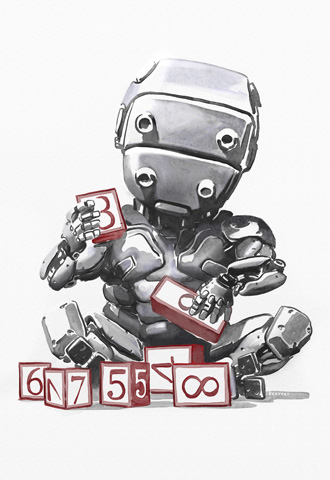Feminist Sci Fi Analysis: Software Objects and Objectified People
We’re getting down to the wire with the Pedal Zombies Kickstarter project!
One hundred and twenty six worthy souls have backed the project, bringing us to just over half our funding goal. We’ve got less than six days left to make this happen. So we’ve added a bunch of new reward levels, featuring custom fun stuff ranging from a letter about the future for your kid to read when they grow up to a custom voicemail greeting from the voice of Zordon of Eltar.
Or you can just get the book, which is a pretty sweet deal in its own right!
Onward to the most popular custom reward last time around: the feminist analysis of sci fi classics recommended by backers.
“The Lifecycle of Software Objects” by Ted Chiang
This analysis is at the request of Mason in California (who, based on his avatar, is an actual zombie!). It’s a longish story, and you can read the entire thing on the publisher’s website. This one was good thinking. The first word of the story is “Her”—referring to a woman named Ana, who plays online warcraft-esque games, is applying for jobs as a software developer, and who goes on throughout the story to navigate a world full of white collar professionals that seems to have gently broken free from any kind of marked expectations or reactions stemming from gender or race.
It’s not exactly a utopia, though. The tone is of strong connections forged and broken and a pervasive loneliness. The software objects of the title are “digients,” sort of next-level virtual pets programmed with a rapidly developing intelligence and personalities. Over the years, the digients become more human-like, but the human consumers move on to other interests. Ana a few others continue to care about the digients they’ve raised and have to make tough choices to keep them real, valid, alive in the online world. Instead of the social order we’re used to either accepting or trying to bend, the world of this story is defined by the rifts between people—calling into question what it means to be a person, a family, a community. The only thing that can be counted on is the definition—and power—of legal corporate personhood. All else is overshadowed, especially questions of personal identity such as gender; your legal status and your access to funds are what identify you above all.
It’s a dystopia that almost makes the messiness of negotiating identity seem preferable. Is the story motivated by nostalgia for more complicated times? Or does it contain a warning that achieving racial and gender parity doesn’t mean much if wealth is still what rules the world? I’ll take the latter and run with it. 
The Windup Girl by Paolo Bacigalupi
In a not-so distant future, the world is ruled by agribusinesses staying only a step ahead of famine and food disease, and the Kingdom of Thailand is on the verge of sinking into the sea. This novel follows a handful of characters around the city in its final days. There was a lot to like about this book, especially the complicated plot, intense political, military, and corporate intrigue, and the two strong female characters, one of whom is a loyal soldier and the other one of whom is a genetically engineered slave.
All of this might make for another interesting analysis along similar lines of what personhood means in a world run by distant corporations, but I got completely thrown off track by the book’s repeated in-depth violent rape scenes. To some extent they served a purpose in the plot, and the victim gets revenge, though even the revenge is designed to be more satisfying to the reader than to the character, who after all just wants to be left alone. But I do wonder: would a woman writing the same story have felt the need to drive that point home so luridly, in such precise anatomical detail, and with such relatively brusque treatment given to the eventual revenge and redemption? You can’t get away from vivid reminders of sexual violence these days just while walking around in the world, browsing the books at the grocery store, reading the news, opening twitter. These prolonged scenes felt gratuitous and bruising, like being told a stranger’s unwanted confession of violent fantasy.